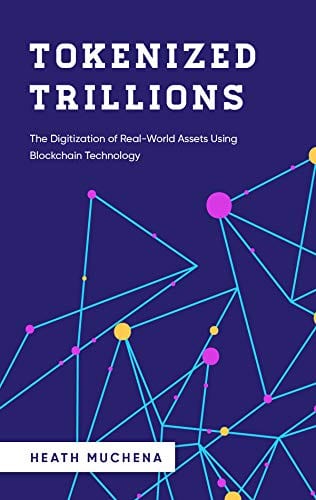Ghana
In January 2018, the Bank of Ghana issued a brief notice to banks and the general public advising against the use of “virtual or digital currencies, also known as cryptocurrencies,” mainly because such currencies and the entities that facilitate their transactions are not sanctioned by the government. The notice stated that: “The Bank of Ghana wishes to notify the general public that these activities in digital currency are currently not licensed under the Payments System Act 2003 (Act 662). The public was therefore encouraged to do business with only institutions licensed by the Bank of Ghana to ensure that such transactions fall under regulatory purview.”
Kenya
In December 2015, the Central Bank of Kenya issued a public notice titled “Caution to the Public on Virtual Currencies such as bitcoin.” The notice stated that virtual currencies are not legal tender and remain unregulated in Kenya, which means that “no protection exists in the event that the platform that exchanges or holds the virtual currency fails or goes out of business.” The notice concluded with a warning to the public to “desist from transacting in Bitcoin and similar products.”
Lesotho
In November 2017, the Central Bank of Lesotho issued a press statement regarding the growing popularity of cryptocurrencies. In it the Bank warned the public of the risks associated with the use of cryptocurrencies, given the fact that the Bank “does not oversee, supervise or regulate the cryptocurrencies, their systems, promoters or intermediaries,” and stated that: “any activities related to the acquisition, trading or use of cryptocurrencies is at the user’s sole and independent risk. Members of the public are therefore notified that in the event of losses or similar eventualities, there shall not be recourse to the Central Bank of Lesotho.”
The Bank also warned the public of the risk of exposure to criminal charges that may result from the use of cryptocurrencies, stating it is important to highlight that cryptocurrencies expose participants to violation of: 1) Anti-money laundering and combating of terrorist financing laws; 2) Tax laws; and 3) Exchange control laws which are prosecutable transgressions.
The Bank issued a follow-up statement in February 2018, where in addition to providing information that reinforced the contents of the previous statement, it noted that cryptocurrencies are neither legal tender in Lesotho nor considered foreign currency. It also barred the operation of individuals and entities that promote investment in cryptocurrency because any and all investment advisors must be licensed.
Mozambique
On January 8, 2018, the Mozambican Federal Reserve Bank (Banco de Moçambique), issued a notice (Comunicado) in its role as supervisor of the financial system in the country informing citizens that a decentralized and convertible virtual currency called bitcoin is circulating in the national territory.
The Bank clarified that it does not regulate or supervise any activity or transaction carried out through bitcoins and is not responsible for any impacts of transactions related to bitcoin, because this currency does not have legal support and is not issued by the national monetary authority, the Bank.
The notice further stated that companies that negotiate bitcoins are not regulated, authorized, or supervised by the Bank; that such virtual currency offers no security, being vulnerable to fraud and other crimes perpetrated using computer means; that its price is highly volatile; and that it allows for the execution of anonymous transactions, favoring criminal activities.
Namibia
In September 2017, the Bank of Namibia issued a position paper titled “Position on Distributed Ledger Technologies and Virtual Currencies in Namibia” in which it noted that virtual currencies are not considered legal tender and are currently unregulated in the country. The Bank outlined the risks associated with the use of virtual currencies, including credit risks, liquidity risks, operational risks, and legal risks. It warned that individuals who hold or trade in virtual currencies do so “at their own risk and should exercise caution.” The Bank further stated that because the country’s relevant laws do not envisage their existence, virtual currency exchanges cannot be established or operate in Namibia.
South Africa
In January 2019, The Financial Intelligence Centre (FIC), Financial Sector Conduct Authority (FSCA), National Treasury (NT), South African Revenue Service (SARS) and the South African Reserve Bank (SARB) published a Consultation Paper on Policy Proposals for Crypto Assets in which they outlined approaches, objectives, principles and proposals for regulating crypto assets.
There are no specific laws or regulations governing the use or trading of virtual currencies (VCs) in South Africa. However, in December 2014 the South African Reserve Bank (SARB), the central banking institution whose responsibilities include formulating and implementing monetary policy and issuing banknotes and coins in the country, issued a position paper on virtual currencies.
The position paper expressly stated that only the SARB may issue legal tender and that decentralized convertible virtual currencies (DCVCs), including bitcoin and litecoin, are not legal tender in South Africa. This means that “any merchant or beneficiary may refuse VCs as a means of payment.”
The SARB warned of various risks associated with the use of VCs, including issues relating to payment systems and payment service providers, price stability, money-laundering and terrorism financing, consumer risk, circumvention of exchange control regulations, and financial stability. No legal protection or recourse is afforded to users, traders or intermediaries of VCs and such activities are performed at the end-users sole and independent risk.
While the SARB’s position paper warned individuals against involvement in trading or holding VCs, it also noted that it does not see VCs as posing any systemic threat at this time:
Values ($6,25 billion) and volumes (60 000 daily average) currently traded in Bitcoin (the leading DCVC) remain insignificant when compared to the formal payment system and the larger economy. VCs are not considered legal tender in most jurisdictions. A multitude of independent variants of VCs exist and are being developed, all aimed at the same niche market. Based on the aforementioned, VCs (particularly DCs), at this stage of their development, are neither broad nor evasive enough to be classified as systemic.
However, it emphasized the need for constant monitoring of DCVCs and said it “reserves the right to change its position should the landscape warrant regulatory intervention.”
On April 6, 2018, the South African Revenue Services (SARS) issued a clarification on the tax status of VCs. SARS noted that it “will continue to apply normal income tax rules to cryptocurrencies and will expect affected taxpayers to declare cryptocurrency gains as part of their taxable income.” Taxpayers must therefore declare all their cryptocurrency income and failure to do so could result in imposition of interest and penalties. SARS appears to have not made a determination whether gains made from trading cryptocurrency are subject to income tax or capital gains tax. It states that:
Whilst not constituting cash, cryptocurrencies can be valued to ascertain an amount received or accrued as envisaged in the definition of “gross income” in the Act. Following normal income tax rules, income received or accrued from cryptocurrency transactions can be taxed on revenue account under “gross income”.
Alternatively such gains may be regarded as capital in nature, as spelt out in the Eighth Schedule to the Act for taxation under the CGT paradigm.
Determination of whether an accrual or receipt is revenue or capital in nature is tested under existing jurisprudence (of which there is no shortage).
The amount of tax accrued to a person could differ a great deal depending on whether gains in VCs are taxed as income or capital gains.
Swaziland
In August 2017 the Central Bank of Swaziland issued a press release regarding virtual currencies. The Bank noted that cryptocurrency does not enjoy legal-tender status in Swaziland. The Bank also noted that bitcoin, a form of cryptocurrency currently being marketed and traded in Swaziland, is currently not regulated and this makes holding or trading the currency risky:
Due to its nature as a cryptocurrency, there are no restrictions, disclosures or regulatory compliance applicable to transactions executed using Bitcoin and yet, like any other currency, it can be used for illegal purposes or to facilitate fraudulent activity. In fact, the anonymity and speed of execution in transacting with cryptocurrency makes it more susceptible to abuse by unscrupulous persons. This presents a risk to users of the currency because there is no protection or legal recourse available from any institution including the Central Bank in the event that the user suffers financial loss from the use of Bitcoin or any other cryptocurrency.
Uganda
In February 2017, the Bank of Uganda (BoU) issued a warning against the use of cryptocurrencies in general and the services of an unlicensed entity called One Coin Digital Money, citing the absence of investor protection schemes and relevant regulatory mechanisms. The Bank warned that “the entity ‘ONE COIN DIGITAL MONEY’ is not licensed by the BoU under the Financial Institutions Act, 2004 and is therefore conducting business outside the regulatory purview of the BoU,” and that the “public is strongly encouraged to do business transactions with only licensed financial institutions.”
The Bank also warned that “whoever wishes to invest their hard earned savings in Cryptocurrency forms such as One-coin, Bitcoin, Ripple, Peercoin, Namecoin, Dogecoin, Litecoin, Bytecoin, Primecoin, Blackcoin or any other forms of Digital Currency is taking a risk in the financial space where there is neither investor protection nor regulatory purview.”
Zambia
In February 2018, the Zambia Securities and Exchange Commission issued a notice on cryptocurrencies and other digital products. The Commission urged “any individuals or entities that are currently investing in or intend to invest in cryptocurrencies and related products/assets to exercise restraint and caution as they do so as the products/assets are largely unregulated and not subject to the jurisdiction of the Commission.” While it did not ban their operation, the Commission cautioned platforms that facilitate cryptocurrency transactions “to ensure that they are not in any way abrogating any part of the [Securities] Act and that those that meet the description of securities in accordance with the Act are registered with the Commission.”
Zimbabwe
In a December 2017 statement the Reserve Bank of Zimbabwe noted that virtual currencies are not legal tender in Zimbabwe and remain unregulated. It issued the following warning to the public regarding the risks presented with the use of cryptocurrencies:
“The use of and trading in cryptocurrencies or virtual currencies is not regulated by the country’s laws and presents risks such as money laundering, terrorism financing, tax evasion and fraud. Under the existing legal and regulatory dispensation, any person who invests in virtual currencies or participates in any transaction involving virtual currencies, does so at own risk and will not have legal protection from, or recourse against, any regulatory authority.”
Main Source: Library of Congress, Regulation of Cryptocurrency Around the World
For a comprehensive understanding of blockchain technology applications across different industries, check out Blockchain Applied – Solving legacy system problems across multiple industries with distributed ledger technology.
The book is a smart business guide to blockchain in business. The book focuses on solving legacy system problems across multiple industries with distributed ledger technology. The work explores current and potential use cases and solutions for Healthcare, Supply Chain, Insurance, Banking, Financial Markets & Trading Systems, Media & Entertainment, Critical Infrastructure Security and Real Estate.
Available on Amazon https://amzn.to/2EoTXD9
Available for Download

Also check out Tokenized Trillions. A comprehensive guide to help you understand blockchain technology and how to determine business requirements essential for token model creation with respect to real-world asset tokenization projects.
Available on Amazon https://amzn.to/2XgXh9L
Available for Download

If you are interested in learning more about Cryptocurrency, Invest & Trading Cryptocurrency, you have come to the right place.
We offer various Online Courses, which include learning the Basics of Cryptocurrency, Trading, Investing & even 1 on 1 Mentorships. These Courses offer knowledge, skills & support through your journey of learning & reaching your goals as a trader & investor.
Click the link below & choose the Course perfect for you.
